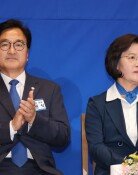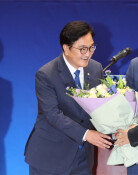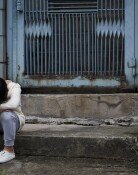[Editorial] The Wrong Real Estate Policy
[Editorial] The Wrong Real Estate Policy
Posted May. 17, 2006 07:04,
One of the priorities of the government policy is to prevent economic bubbles from being created. A sudden burst of bubbles can bring catastrophic consequences such as a financial crisis. Recently, Cheong Wa Dae named seven areas in which housing prices soared significantly as the bubble seven. Those seven areas are Gangnam-gu, Seocho-gu, Songpa-gu, and Mok-dong in Seoul and Bundang, Pyeongchon, and Yongin in Gyeonggi Province.
Cheong Wa Dae said that, excluding these areas, housing prices have relatively stabilized. The government has come up with new real estate policies on as many as 35 occasions. Nevertheless, the number of areas that have seen a rapid surge in housing prices increased. This is largely attributable to the failure of the governments policy. Moreover, housing prices also went up in places like Yongsan-gu, Gangseo-gu, and Nowon-gu in Seoul, Ilsan of Gyeonggi Province, Incheon, Busan, and Daegu besides the bubble areas. It seems clear that the government is far from striking two percent for the sake of 98 percent as it claims.
If the surged housing prices in some areas are bubbles as Cheong Wa Dae claims, then policymakers should be held accountable for failing to prevent bubbles even after having been awarded medals for formulating well-designed real estate policies. The governments argument that its time for bubbles to burst is more irresponsible. It is like destroying the economic polices they built themselves. The financial crisis triggered by the burst of bubbles in the value of the won made many Koreans suffer, and some of them even killed themselves. Japan, the worlds second largest economy, suffered the long economic recession called the Lost Decade because of the burst of bubbles in its real estate market.
Government officials remarks about bubbles, which came at a time when they should commit themselves to achieving a soft landing in real estate prices, leaves the public doubting their leadership. As of the end of April this year, mortgage loans from banks reached 200 trillion won. The figure increased by a whopping 3.17 trillion won in April alone. Under the circumstances, a dramatic fall in housing prices would make it difficult for borrowers to repay principal and interest amounting to hundreds of trillions of won. The resulting hardships of financial organizations could lead to a serious economic crisis when coupled with external shocks regarding exchange rates and oil prices. This will lead to failure of a real estate policy that Cheong Wa Dae stresses for the middle class and ordinary citizens.
On the same day when Cheong Wa Dae coined the term bubble seven, Cho Soon, the former finance and economy minister, said, It is uncertain that the heavy taxation policy will produce desired effect when liquidity is high, interest rates are low, and incentives for holding real estates including development projects of corporate cities or innovative cities have been offered continuously. His remarks are indirect but to the point of the problem facing the government.







